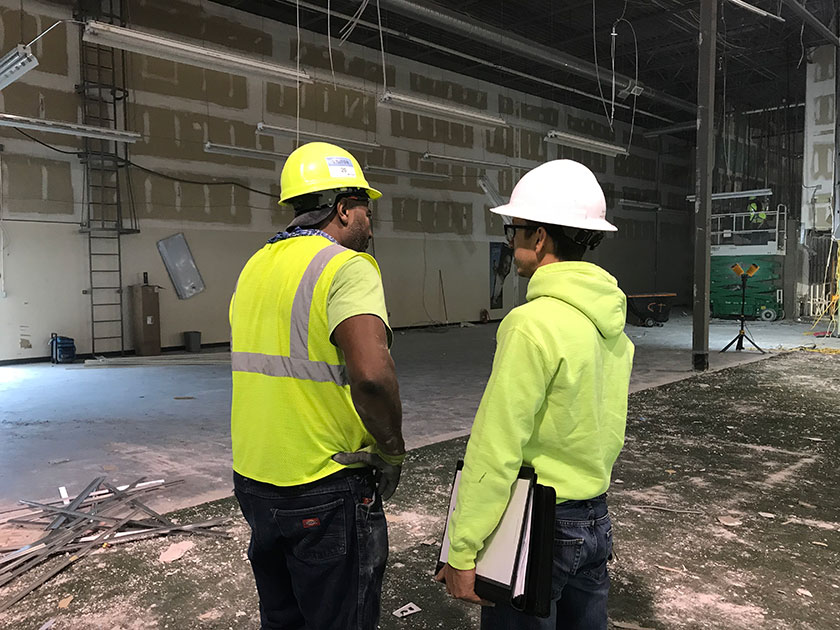An Inside Look at One Company Building a Culture of Second Chances

For 15 years, John Rush trained and hired more than 3,000 men and women with a criminal record. His focus has been on creating small businesses designed to provide supportive employment for individuals impacted by incarceration, addiction, trauma, or some combination. His investment has resulted in dedicated employees who are motivated to succeed and help others like themselves.
John helped found CleanTurn, the business he now runs as CEO, in 2012. The company provides professional cleaning and interior demolition services. But they also provide something more important: second chances.
Most of the almost 800 people CleanTurn has employed were once incarcerated. The result? "CleanTurn has generated about $25 million in economic value in Ohio without depending on taxpayer or philanthropic dollars," John says. By extending second chances to former prisoners and equipping them to succeed, CleanTurn is changing perceptions and shattering the myth that a person's past dictates their future.
Most Americans agree with employers extending second chances, something business owners might not be aware of. New research shows that three-quarters of Americans would feel comfortable knowing that the businesses they patronize give former prisoners a second chance through employment. The same number (76%) of Americans are comfortable working for an employer known to give second chances.
If your organization is hesitant or curious about employing former prisoners, consider these six lessons John has learned from doing just that for more than a decade.
1. DON'T LET SOMEONE'S PAST DICTATE THEIR FUTURE
"An individual that has spent time incarcerated is just as much a human being as someone who hasn't," John says. "If you're looking for individuals who can be an asset to your company, the past will certainly inform the present, but it shouldn't dictate the person's future."
2. FORMER PRISONERS OFTEN HAVE A STRONG WORK ETHIC
"Often, individuals returning from incarceration have an extra desire to motivate themselves and be part of a bigger mission to change people's perceptions," says John. Individuals with felony-level criminal backgrounds have been promoted more quickly in the nation's largest employer—the military— and to higher ranks than other enlistees, according to research.
3. MOVE TO A RETENTION-BASED CULTURE
"For those serving shorter sentences, they usually have petty crimes tied to an addiction, so it's a revolving door," he says. "A placement-based culture only focused on getting people jobs is not going to work when returning citizens need focused recovery alongside employment. We need to move from a placement-based culture to a retention-based culture." The issue is not whether we are placing a returning citizen in a job, he says, but "whether or not we are doing everything we can to equip and prepare individuals to meet the need of real market demands by placing them on a career path that is promising and rewarding."
4. INVEST IN EMPLOYEE ADVANCEMENT
"Our primary focus in our 'Career Advancement Training' relates to the soft-skills necessary for developing a career-oriented mindset. Our training, in addition to the hard-skills learned related to cleaning and demolition, is designed to equip individuals with the mindset of a professional pursuing a dream—whatever that dream might be, like a dream intimately connected with real life circumstances, barriers, additional training, etc.," says John. "Our formal class structure includes professional development, life-skills, goals, financial literacy, health and wellness, and emotional intelligence. Our model integrates continuous coaching and mentoring in the everyday life of the business along with professional counselors who we have on retainer."
5. REDEFINE ORGANIZATIONAL SUCCESS
"I like to think of success as more than something identified with monetary gain. This is certainly a part of the equation, but not the full story," John says. "I think one of the most important aspects of success is for business owners to experience a more diverse and expanded world than the myopic and cloistered life that is easy to get trapped into. I think success is realizing you don't have to compromise your pursuit of improving sales and margins in your pursuit of creating an organizational culture that shatters the myth that a person's past dictates their future."
6. FIND YOURSELF IN A BIGGER STORY
John says, "Without faith it would be harder for me to grasp the ultimate why for anything without a hope that there is some sort of end toward which all of this work—the long hours, the tears, the laughter, the coaching, the longings, the misunderstandings—leads. For me, that why seems to be the story of the incarnation, death, and resurrection of Christ. Against all hope, a new life. Faith working through love. To be a recipient and a conduit of such love is beyond my understanding and, often, something very difficult for me to remember and live out. Yet with such belief, and despite many failures, I can't envision operating any business or living life in any other way. Having tasted this freedom and having seen its manifestation in the lives of others, I increasingly realize how this freedom brings a great responsibility to imagine the world differently—a world where justice and mercy meet resulting in forgiveness, restoration and hope. A world captivated by beauty."
ABOUT CLEANTURN
CleanTurn is one of more than 290 businesses, congregations, and organizations partnering with Prison Fellowship in celebrating Second Chance Month in April. Approximately 70 million Americans have a criminal record. These men and women face more than 44,000 documented restrictions affecting where people with a criminal record can live, work, vote, study, among others necessary to lead a full and productive life. Prison Fellowship launched Second Chance Month to raise awareness about these obstacles, break down barriers, and create second-chance opportunities.
Learn more about Second Chance Month and how you and your organization can be part of the national second chance movement.